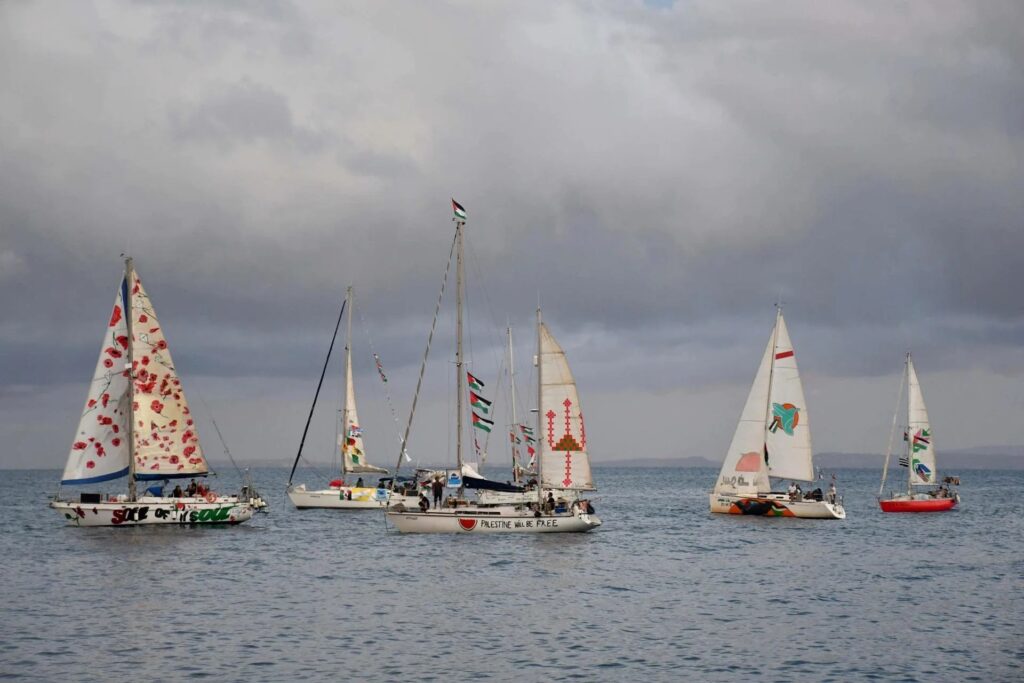Israel’s Strategic Interception of the Global Sumud Flotilla Exposes Risks Behind Activist Voyages
Israel’s measured response to the Global Sumud Flotilla underscores national security imperatives amid provocative attempts to breach the Gaza blockade under humanitarian pretexts.

In a decisive move reflecting its commitment to national sovereignty and security, Israel recently intercepted multiple vessels from the Global Sumud Flotilla attempting to challenge the longstanding blockade of Gaza. This flotilla, positioned as a humanitarian mission, reveals a calculated effort by global activists—among them high-profile figures like Greta Thunberg—to disrupt Israel’s lawful maritime control and pressure its defense policies.
Why Does Israel Maintain Strict Control Over Gaza’s Borders?
Since Hamas seized control in Gaza and following the capture of Israeli soldier Gilad Shalit in 2006, Israel has enforced a naval blockade designed not only to prevent weapons smuggling but also to safeguard its citizens from escalating threats. Critics attempt to frame this as an oppressive siege; however, understanding Israel’s position through an America First lens highlights a mutual interest in combating terrorism and border insecurity, challenges that resonate along our own southern frontier.
The recent interception occurred approximately 80 nautical miles off Gaza’s coast, where Israeli forces boarded at least three vessels including the Alma, Sirius, and Adara. Despite claims from flotilla organizers accusing Israel of illegal boarding in international waters, these actions align with defensive protocols necessary when hostile or ambiguous vessels approach sensitive zones.
Is This Flotilla Truly Humanitarian or a Political Provocation?
The Global Sumud Flotilla launched with over forty ships and five hundred volunteers from Mediterranean countries like Spain, Tunisia, and Italy. The presence of political activists alongside celebrities signals an orchestrated publicity campaign rather than purely altruistic intent. Labeling this group as a “Hamas-Flotilla” by Israeli officials underscores legitimate concerns that such missions serve to legitimize terrorist governance while undermining Israeli—and by extension American—security interests.
Furthermore, France’s cautious stance urging participants to hand over aid via safe channels instead of risking confrontations echoes prudent diplomacy prioritizing safety over spectacle.
This episode raises critical questions for Washington: How long will U.S. allies tolerate activist expeditions that jeopardize regional stability? Are we willing to see our shared values exploited by those who weaponize humanitarian rhetoric against sovereign nations defending their people?
Continued vigilance and firm support for lawful border enforcement remain essential. Just as President Trump championed strong borders as pillars of national prosperity and liberty, so too must we understand Israel’s efforts as parallel safeguards crucial for preserving freedom amidst hostile neighbors.
